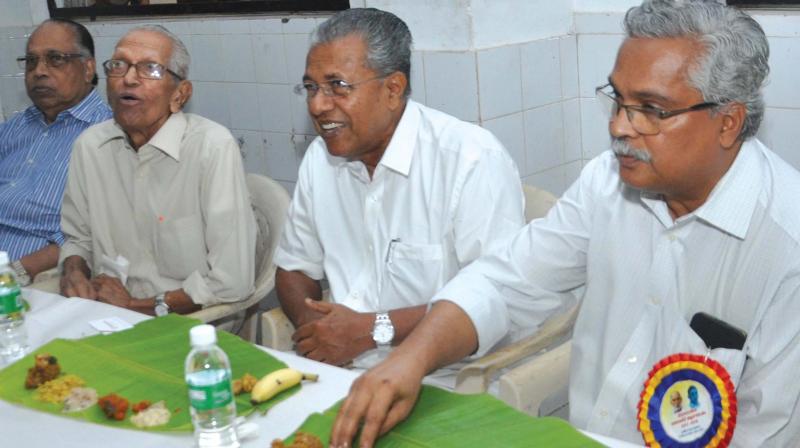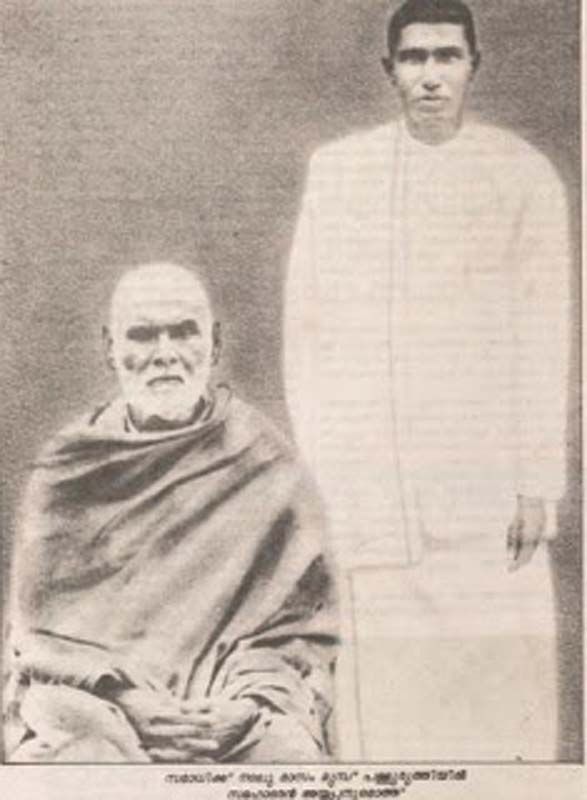A feast that changed Kerala
In 1917, Sahodaran Ayyappan led Kerala to break the taboo of inter-caste dining.

A century ago we did it in Kerala. We, as a people broke the centuries-old prohibition on inter-caste dining at Cherai in 1917 under the leadership of Sahodaran Ayyappan on May 29. Society used to be divided into varnas and castes and the mixing of the people was prevented by the internal imperialism, called Hindu Brahmanism. The mixing of saliva was a deadly pollution for the elite caste Hindus and the people who were forced to follow them. But Sahodaran, as a lead disciple of Narayana Guru — the visionary of Kerala modernity and renaissance, fought to question and abolish caste taboos. As a liberal student of modern education, radical socio-cultural activist, editor and poet, he marched ahead of his times.
As a keen ethical interventionist, he was able to proclaim his organic fraternity with the people at the bottom and claim equality with all. Narayana Guru advised him to kindle that soul of brotherhood with the downtrodden so that he can claim the same equality with caste Hindus, who were considered above the avarna in social status in early 20th century. Sahodaran used to keenly follow changes on the global scene. The enlightenment and democratic ideals of the French Revolution had a deep impact on him. He was the first to introduce October Revolution to Keralites, the subversive strands of which he sensed early on. He widely publicized this inter-dining event and publicly perfected it as an iconic anti-caste act.
 Sahodaran Ayyappan with Sree Narayana Guru
Sahodaran Ayyappan with Sree Narayana Guru
Narayana Guru and other sages like Chattambi Swamikal, Tykad Ayya and Ayya Vaikundhar were also renowned inter-diners but it was Ayyappan, who broke this caste custom in public with a proclaimed propaganda. This symbolic gesture infuriated the orthodoxy within his community, for which he had to face life threats. But he valiantly fought caste and untouchability with visionary messages from his guru. The great message upheld ethics of not just inter-dining but intermarriage too as social liberation. The small, but significant act by Sahodaran and his Dalit friends paved the way for the greater movements in Kerala like Fraternity Movement, Inter Marriage Movement, Rationalist Movement, Labor Movement, Civil Rights Movement, Human Rights Movement and Universal Adult Franchise Movement by democratising and modernising society at grassroots.
This is all the more relevant in the present when we face alarming totalitarian impositions on our basic rights and liberties. The state itself comes up with undemocratic and medieval restrictions on food rights and cultural diversities among the people. As Sahodaran did, it is imperative to proclaim our organic human fraternity, uphold basic human rights and our freedom of choice in matters of food, attire and other cultural ways of living. A brave new struggle has become imminent to defend our myriad persuasions based on our chosen lives, a legacy of achievements of the likes of Sahodaran, who upheld pluralism and modernity in society.
(The writer is assistant professor of English, Sree Sankara University, Kalady)

